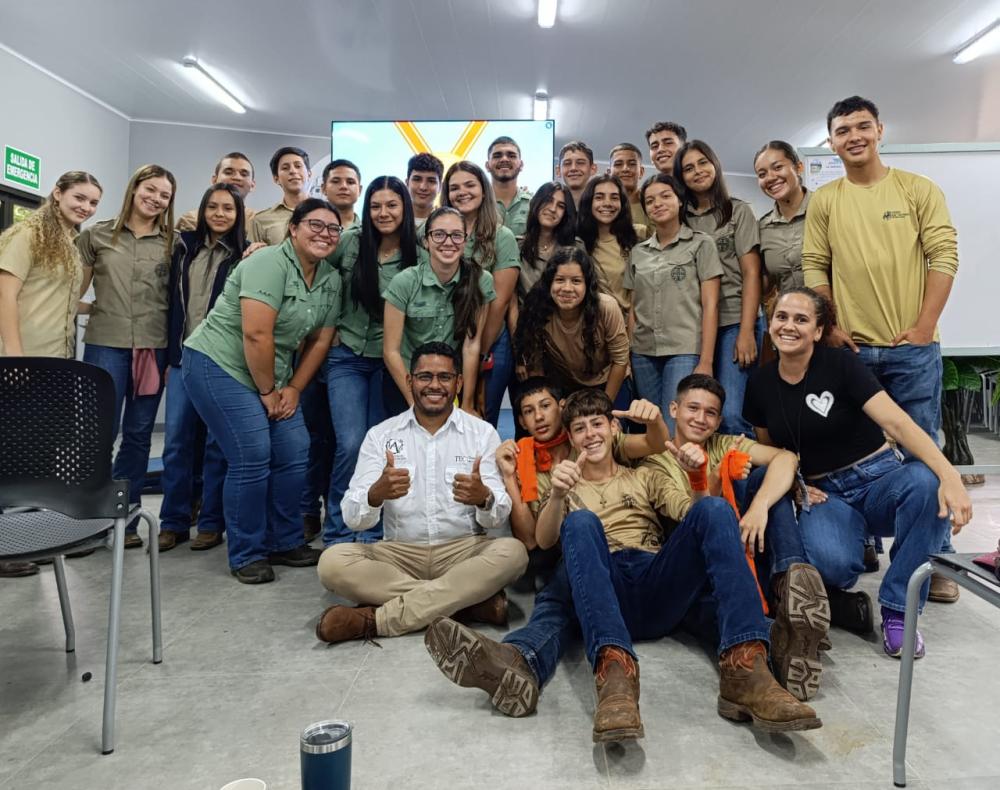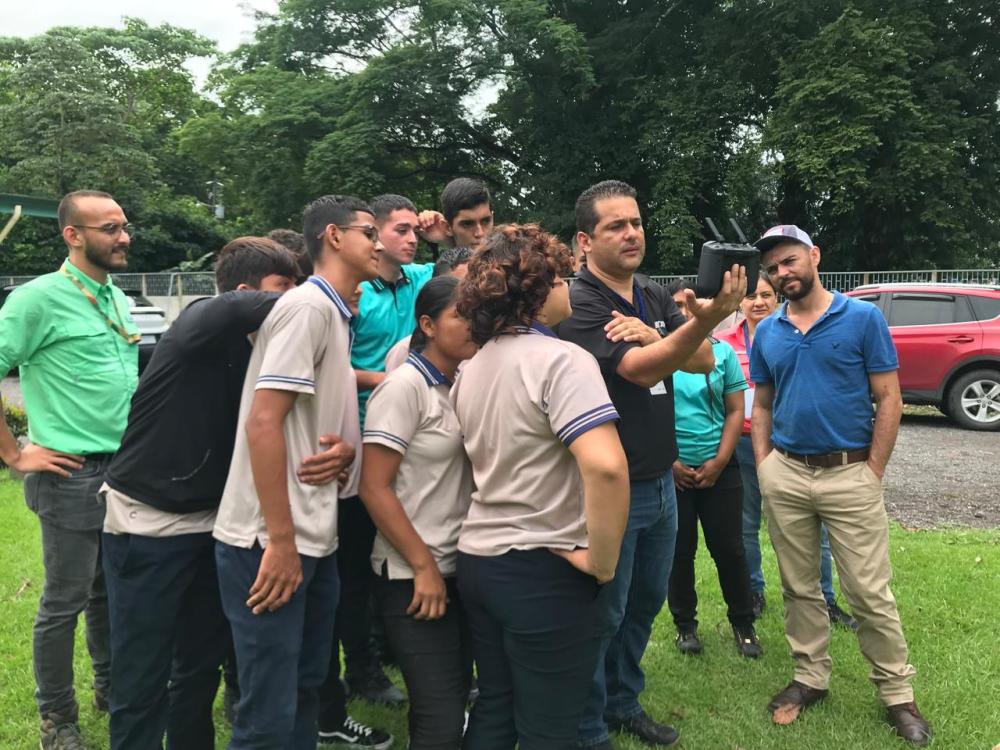The project “Relevance of Secondary Education in Natural and Environmental Sciences in Rural Agricultural Areas of Costa Rica” involves more than 2,000 students from this country.
San Jose, 31 July 2024 (IICA). A total of 840 students from tenth, eleventh, and twelfth grade from 39 Professional Technical Schools (CTPs) in Costa Rica, specializing in agricultural and livestock production, have strengthened their skills in drone management, soil management and carbon neutrality thanks to an initiative implemented in areas where agriculture is a primary activity.
The project entitled “Relevance of Secondary Education in Natural and Environmental Sciences in Rural Agricultural Areas of Costa Rica” is jointly implemented by the Inter-American Institute for Cooperation on Agriculture (IICA), the Inter-American Development Bank (IDB), Microsoft, and the Ministry of Public Education (MEP) of Costa Rica.
The project seeks to implement a pedagogical strategy to promote the interest of younger generations, including women, in economic activities related to the agriculture sector. It also seeks to improve the quality and relevance of technical secondary education in agricultural and environmental sciences, adapting it to the specific needs of rural areas in Costa Rica.
In total, the initiative involves more than 2,000 students who participate in research processes, training workshops, and the use of digital resources.
The CTPs involved in the project are Puriscal, La Gloria, Pejibaye, and Platanares in the province of San José; Talamanca, Valle La Estrella, Batán, Padre Roberto Evans Sauders, and Pococí in the province of Limón; Corredores, Guaycara, Sabalito, Umberto Melloni Campanini, Osa, Buenos Aires, Cóbano, and Jicaral in the province of Puntarenas; Puerto Viejo in the province of Heredia; Pital, Guatuso, La Fortuna de San Carlos, Agropecuario de San Carlos, Los Chiles, Santa Rosa de Pocosol, Upala, Nataniel Arias Murillo, San Mateo, and Ricardo Castro Beer, in the province of Alajuela; and Hojancha, 27 de Abril, Carrillo, Liberia, and Sardinal in the province of Guanacaste.
The initiative is aligned with the sustainability and rural development objectives set out in the National Development Plan, providing students with the requisite tools and knowledge to face future challenges.
“This project contributes to the implementation of the new study program for the technical degree in Agricultural and Livestock Production. Training in soils, carbon neutrality, and drone management represents an excellent opportunity for students to become part of the green economy, promoting sustainable agricultural practices that benefit both the environment and the local economy”, explained Joyce Mejías Padilla, head of the Technical Programs Department at MEP.

Initially, digital learning materials were developed, focusing on prioritized topics (soils, production systems, precision agriculture, carbon neutrality, micropropagation, and the Internet of Things), transversally addressing gender equity and interpersonal skills. Based on these learnings, training workshops are conducted with the students.
“In the workshops, emphasis was placed on improving students’ knowledge of soil and carbon neutrality concepts to better understand food systems, from production to consumers”, said Muhammad Ibrahim, Director of Technical Cooperation at IICA.
“These training workshops address the challenges of rural reality, the inclusion of women in agriculture, and the promotion of competitive and resilient production systems to the effects of climate change”, added Karen Montiel, the IICA technical specialist in charge of the project.
According to the employment survey conducted by the National Institute of Statistics and Census, the unemployment rate among young people aged 15 to 24 is three times higher than the national average in Costa Rica, while 46% of companies report difficulties filling vacancies requiring digital skills, according to a recent study on Digital Talent Demands and Gaps carried out by the IDB.
“It is a source of pride for the Bank to support the country in promoting the development of skills that facilitate young people’s access to the labor market. This is a major challenge with the so-called green and digital transition, which is creating and transforming jobs. Therefore, we are promoting a project that also encourages the participation of women and repositions agriculture as an innovative and sustainable career”, said Francisco Javier Urra, IDB Representative in Costa Rica.
“The workshops are a learning opportunity for students pursuing the Agricultural and Livestock Production specialization, as well as for those who are about to graduate to visualize new job options”, added Rosa Jiménez Masís, a teacher at the Talamanca CTP.

“At Microsoft, our mission is to empower every person and every organization on the planet to achieve more, so we are very excited to collaborate with various organizations to promote education and strengthen the technological capabilities of young people in Costa Rica”, commented Ineke Geesink, country manager for Microsoft Costa Rica and director of the Corporate, Medium, and Small Business Segment for Microsoft Central America and the Caribbean.
Students also participated in demonstrations of drone use, advanced technology that allows for monitoring, making decisions for sustainable and resilient crop and livestock production, improving efficiency in agricultural management, and optimizing the use of natural resources.
With a donation of nearly one million dollars from the IDB’s Special Fund Poverty Reduction Project (JPO), along with contributions from IICA and Microsoft, the project aims to generate a pedagogical mediation strategy that incorporates the needs of rural areas into the curriculum of the schools operating in the area and increases the interest of men and women in professional careers related to agriculture.
More information:
Institutional Communication Division.
comunicacion.institucional@iica.int











